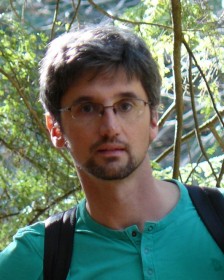
3:00 pm to 4:00 pm
Event Location: NSH 1507
Bio: Christophe De Vleeschouwer is a Professor at ‘Université catholique de Louvain’ (UCL), and a Research Associate of the Belgian NSF. He received the M. Eng. and the Ph. D. degrees from UCL, in 1995 and 1999 respectively. As a young PhD, he was a senior research engineer with the IMEC Multimedia Information Compression Systems group (1999‐2000), and contributed to projects with ERICSSON. He was also a post‐doctoral Research Fellow at UC Berkeley (2001‐2002, Prof. Avideh Zakhor), and at EPFL (2004, Prof. Pascal Frossard). His main interests concern video and image processing for visual scene interpretation and communication applications, including compression, streaming, personalized content generation and access management. He is also enthusiastic about non‐linear signal expansion techniques, and their use for image signal analysis. Research group web page: http://sites.uclouvain.be/ispgroup/.
Abstract: Smartphones and tablets promote a personalized consumption of video content, making the democratic production of targeted content a topic of primary interest for content providers. This talk discusses how computer vision can help in facing this challenge in controlled scenarios, as most notably encountered for sport events.
The first part of the talk presents a fully automatic production solution to cover basketball games in a cost-effective manner, making the creation of video reports affordable, even in case of small or medium-size audience. We describe how production decisions in a static-camera infrastructure are derived from an original input-sensitive player detector. We also explain how video feeds annotations can support personalized access capabilities, thereby increasing content attractiveness and value.
The second part of the talk explains why more research in vision is needed to leverage the automated production concept. Issues like player recognition & tracking, but also game action analysis, appear to be critical to support high-quality video delivery, audio feeds synthesis, and generalization to a broad range of teamsports. Some of our recent contributions in those fields are presented. Their limitations in real-life deployment scenarios are pointed out to stimulate new research.
